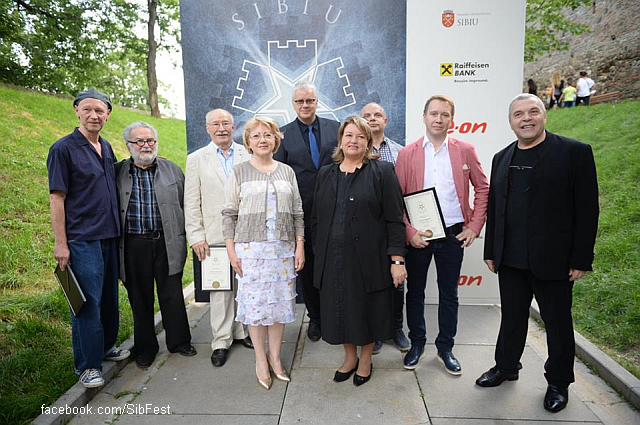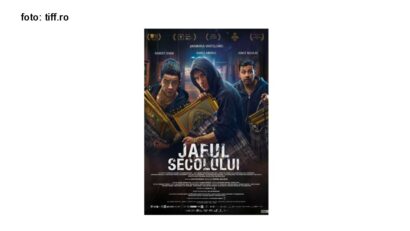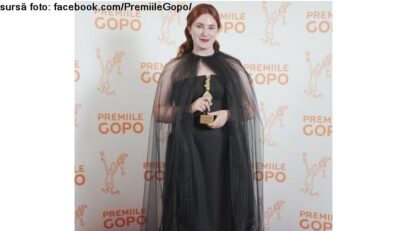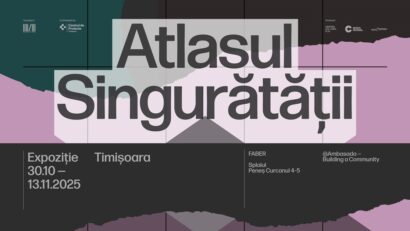The Sibiu International Theater Festival has drawn to a close
Trust was the theme of the Sibiu International Theater Festivals 23rd edition.

Luana Pleşea, 02.07.2016, 14:19
Trust is the element without which the festival would not have acquired the scope it has today, translating into 472 events and the presence of leading names in the world of Romanian and foreign theater. The plays, performed in theater halls, in the street and other unconventional areas, the concerts, film screenings, conferences and book launches and also the chance to talk to theatre personalities, the friendships made in the ten days of festival make it a unique event.
The Radu Stanca National Theater in Sibiu was the organizer as well as the host of the event. In this recent edition, it was present in the festival with three productions, included in the Heritage section. All three productions had the same director, Silviu Purcarete. We’re speaking about “Faustus”, “Lulu” and “Metamorphoses”. The Radu Stanca Theater has already presented the premieres of the ongoing theater season, a topic we have already dealt with. It has also come up with a new premiere, which is the second part of the trilogy titled “How Far Are We from the Caves We Got Out Of?” a co-production of Radu Stanca National Theater and the Lucian Blaga University in Sibiu. Just like the first part of the trilogy, entitled “Antisocial”, the performance titled “#minor”, stage-directed by Bogdan Georgescu tackles education-related issues.
With details on that, here is director Bogdan Georgescu himself: ”I believe the most important thing is that performances should trigger debates and raise questions we should ask ourselves, also exploring what education means, how we actually run education and where some things stop and others begin…If in Antisocial there are conversations between parents, teachers and pupils, in “#minor” the talk gets a little bit more personal and is held between parent and child. The story revolves around those deeply engrained Romanian mentalities, of the type “I’m the one who gave birth to you, I’m the one who’s going to kill you”, “beating is a gift from heaven” or “spare the rod, spoil the child”. There is also the fact that in Romania even in 2016, physical abuse against children is tolerated and deemed a minor issue, it is even viewed as an education and correction method, which is quite revolting.”
Just as it happened with “Antisocial”, when the shows were followed by discussions with the audience, “#minor” is followed by talks with those attending. And, just like Antisocial, it will be taken on a nationwide tour.
Speaking about that, here is stage director Bogdan Georgescu once again: ”This time around, we have invited a psychologist, as some of the topics approached are sensitive. I sort of sensed tension looming, while we were having our discussion with the public in the wake of the premiere we had at the festival. We could sense that the vast majority was directly affected, and either abused someone or were abused at a certain point in their lives. And then, I believe we need to go a lot more gently about that when we moderate the discussion, as we may run the risk of unleashing something that needs to be managed with professionalism.”
In 2013, as part of the Sibiu International Theater Festival a new project was initiated, Celebrities Alley. Inspired from Walk of Fame, Celebrities Alley has been imagined as an area where personalities are permanently celebrated and acknowledged as having a special contribution to Sibiu’s cultural progress. The likes of Klaus Maria Brandauer, Neil LaBute, Tim Robbins, who is the recipient of the star this year, are friends of the festival and of the theater in Sibiu. Following George Banu, Siviu Purcarete, Gigi Caciuleanu, it was Victor Rebengiuc’s turn to have a star on the Citadel Park Alley in Sibiu. The actor was deeply touched by the apparently never-ending standing ovations.
Speaking about that, here is Victor Rebengiuc himself: ”I don’t think I am a celebrity, I think of myself as being an actor who compelled recognition as a result of his track record. I know that because, as I walk down the street, people say to me, “My Respects, Victor Rebengiuc! And that, for me, is deeply touching. I am very happy that my work does not go unnoticed. There are other Romanians on Celebrity Alley, such as Silviu Purcărete, George Banu and Gigi Căciuleanu, whom I know, as with Silviu Purcarete I worked for a great many stage performances, George Banu is my friend, we’ve known each other for quite a long time. All of them are theatre legends. I respect them all. Two of them are outstanding stage directors and I’ve seen their work: Christoph Marthaler şi Thomas Ostermeier. I was thinking, when Evgeny Mironov did his talk, how blessed he was to have worked with the world’s greatest stage directors. I also had the chance to work with Romania’s greatest directors, such as of Liviu Ciulei, Lucian Pintilie, Radu Penciulescu, Silviu Purcărete, Yuri Kordonsky, Andrei Şerban, whose name Tim Robbins also mentioned…They were also my mentors.”
For quite a long time now, George Banu has been a friend of the Sibiu International Theater Festival. Banu teaches Drama at the Sorbonne in Paris and is a three-time winner of the Best Theater Book Award in France. It is also thanks to him that the most important names of European theater are now coming to Sibiu. As for the book launched at the festival this year, Conversations on Theater. The Sibiu International Theater Festival, brought out by Nemira Publishers, it provides a glimpse of the festival as a privileged area for significant encounters and exchange of ideas, also offering an inkling of the stage vision in the case of artists such as Peter Stein, Wajdi Mouawad, Silviu Purcărete and Dragoş Buhagiar.
George Banu:”This book was thought out following a discussion I had with Constantin Chiriac who said that recordings in Sibiu provide a sizeable capital of theatrical thought. And then I said to myself that it was interesting to see what Peter Stein or Krystian Lupa had to say here in Sibiu. I only spoke to creators whose work is deemed essential for the European stage. And my condition was the condition of the one who knew all of them beforehand. Such a prerequisite was important, to the extent that some sort of mutual trust did exist. You know who you’re talking to. I am extremely interested in what people say, and people sense the interest I share in what they say. That is why I believe the people involved got richer thanks to the talks we had. This book was also born out of the idea that theater people speak better than they write.”
In the end, here is George Banu once again, this time sharing his impressions about the recently-held edition of the festival: ”We might as well praise the organizers of the festival for the performances in the Great Square which are totally unexpected performances, something that you do not see in the West. And here, Constantin Chiriac’s far-reaching and strategy comes in, about which stage director Eugenio Barba said it laid out the theater’s ecological territory, which means that we get to see stage performances with no great artistic quality, but which are very animated, also creating pure and perfect forms, just like in the Noh Japanese theater, so it is that very contradictory conglomerate that renders the specificity of Constantin Chiriac’s standpoint, which also enables him to address audiences in Sibiu.”






























